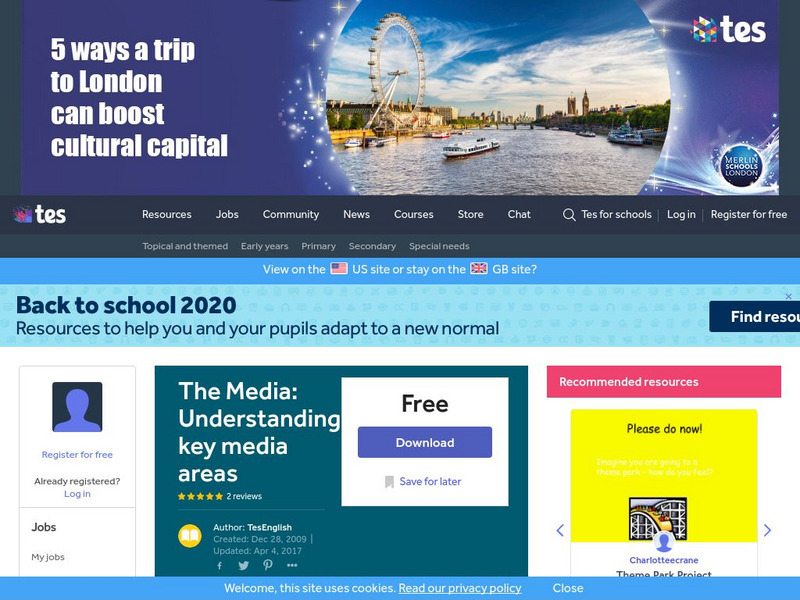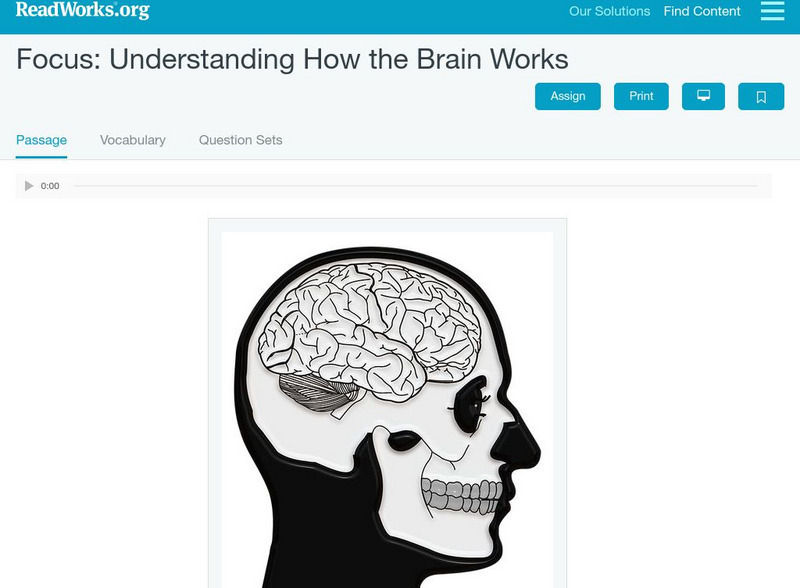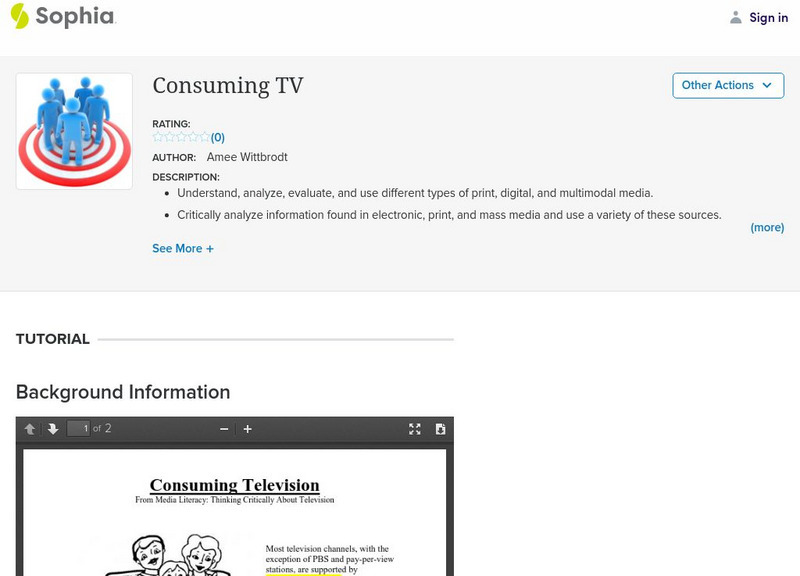Hi, what do you want to do?
Polk Brothers Foundation Center for Urban Education at DePaul University
De Paul University: Center for Urban Education: Compare Info in a Video and an Article [Pdf]
This Center for Urban Education resource provides a downloadable graphic organizer designed for comparing a video and an article about the same topic.
Polk Brothers Foundation Center for Urban Education at DePaul University
De Paul University: Center for Urban Education: Guided Reading/listening Ques: Nonfiction[pdf]
This graphic organizer will assist students with taking notes connected nonfiction content. After taking notes with the graphic organizer, students will ask guiding questions listed on the sheet.
Other
University of Idaho: Information Literacy
This learning module focuses on Information Literacy including internet basics, locating, evaluating, sharing, and documenting information.
ReadWriteThink
Read Write Think: I Chart
A printable inquiry chart designed to help students ask questions and collect information from various texts when conducting research on any topic. Directions on how to use this type of graphic organizer as well as lists of teaching...
ReadWriteThink
Read Write Think: K W L S Chart
A printable K-W-L-S sheet to help students activate prior knowledge, ask questions, record new learning, and then ask additional questions to extend inquiry beyond the text . Directions on how to use this type of graphic organize as well...
ReadWriteThink
Read Write Think: Get the Gist: A Summarizing Strategy for Any Content Area
A five-part standards-based lesson in which students learn to write a 20 word summary of an informational text by focusing on answering the questions who, what, when, where, why, and how. This strategy can be applied to any content area,...
ReadWriteThink
Read Write Think: Critical Media Literacy: Commercial Advertising
In this lesson, young scholars will examine mass media critically and become aware of how much advertising is around them. They will realize the impact media has on social equality, what people buy, and on culture.
International Reading Association
Reading Online: Content Area Literacy Lessons Go High Tech
Research and ideas about the use of technology to aid in reaching content area literacy goals.
New Zealand Ministry of Education
Nz Ministry of Education: Extra! Extra!
In this lesson students will learn about newspapers including the parts of a newspaper, purpose, and structure of articles. They will gather, record and present information from a variety of sources, using different technologies and...
Polk Brothers Foundation Center for Urban Education at DePaul University
De Paul University: Center for Urban Education: I Can Classify and Infer When I Read [Pdf]
This site contains links to two graphic organizers to guide and assess the understanding of nonfiction text in science and social studies.
Polk Brothers Foundation Center for Urban Education at DePaul University
De Paul University: Center for Urban Education: Identify Important Info When I Read [Pdf]
Links to self-assessment activities for content area fluency activities are found on this resource. Students will read, time themselves, and record facts. Students will improve their reading rates and levels of comprehension.
E Reading Worksheets
E Reading Worksheets: Fact and Opinion Lessons
In this learning module, students will learn more about the differences between facts and opinions. A PowerPoint presentation and related activity are provided to reinforce the topic of facts vs. opinions. This module is designed to...
E Reading Worksheets
E Reading Worksheets: Fact and Opinion Worksheets
Fact and opinion practice exercises, answer sheets, and explanation summaries are included on this tutorial site. Worksheets are tiered in levels of difficulty.
TES Global
Tes: The Media: Understanding Key Media Areas
[Free Registration/Login Required] During this unit of study, students will analyze several types of advertisements. Students will analyze how authors pay attention to the language and visuals to appeal to their audiences.
Read Works
Read Works: Focus: Understanding How the Brain Works
[Free Registration/Login Required] This nonfiction piece discusses the human brain. This passage is a stand-alone curricular piece that reinforces essential reading skills and strategies and establishes scaffolding for vocabulary...
Read Works
Read Works: Mountain or Molehill?
[Free Registration/Login Required] An informational text about biochar, an ancient idea with some present day uses. A question sheet is available to help students build skills in reading comprehension.
Read Works
Read Works: The Growth Factor
[Free Registration/Login Required] This informational text passage shares information about ways to project heighth in students. This passage is a stand-alone curricular piece that reinforces essential reading skills and strategies and...
E Reading Worksheets
E Reading Worksheets: Fact and Opinion: Reading Test 3
A 25-question quiz where students must identify statements as fact or opinion. Results can be printed, saved, or emailed.
Sophia Learning
Sophia: Consuming Tv
In this tutorial, students will read about the viewing of television in American households through the reading of a passage and the viewing of a video segment. Students will then engage in answering basic comprehension questions,...
Cyberbee
Cyberbee: Photo Analysis Guide
This site is a guide to help students analyze visual media. Further research questions included.
Other
Media Education Foundation: Deconstructing a Video Advertisement [Pdf]
Handout that leads students through an exploration of the visual and audio elements of a video advertisement as well as the effect these elements have on the intended audience and the community as a whole.
Education Development Center
Education Development Center: Tv411: Reading Structure of a News Story
Interactive lesson explains the content and organization of newspaper articles. Includes self-scoring exercises for practicing identifying the five W's (who, what, when, where, and why) in a series of brief news articles and a...
Education Development Center
Education Development Center: Tv411: Parts of a Newspaper
Students click through a instructional activity about the parts of a newspaper and answer questions about the types of articles found in each section, headlines, and captions that would go with photographs. Links to related videos are...
Education Development Center
Tv411: Reading: Parts of a Newspaper
A series of three activities help readers become familiar with parts of a newspaper, from sections to headlines and captions.





![De Paul University: Center for Urban Education: Compare Info in a Video and an Article [Pdf] Graphic De Paul University: Center for Urban Education: Compare Info in a Video and an Article [Pdf] Graphic](https://static.lp.lexp.cloud/images/attachment_defaults/resource/large/FPO-knovation.png)
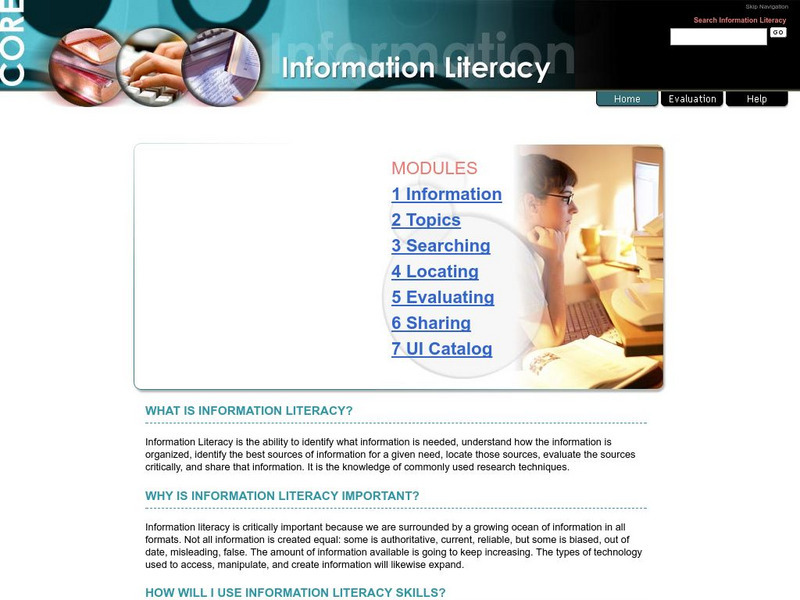


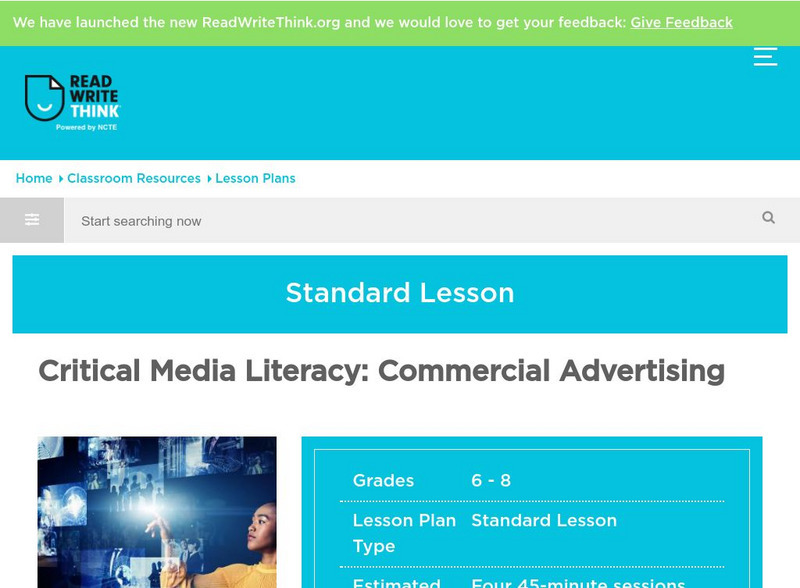
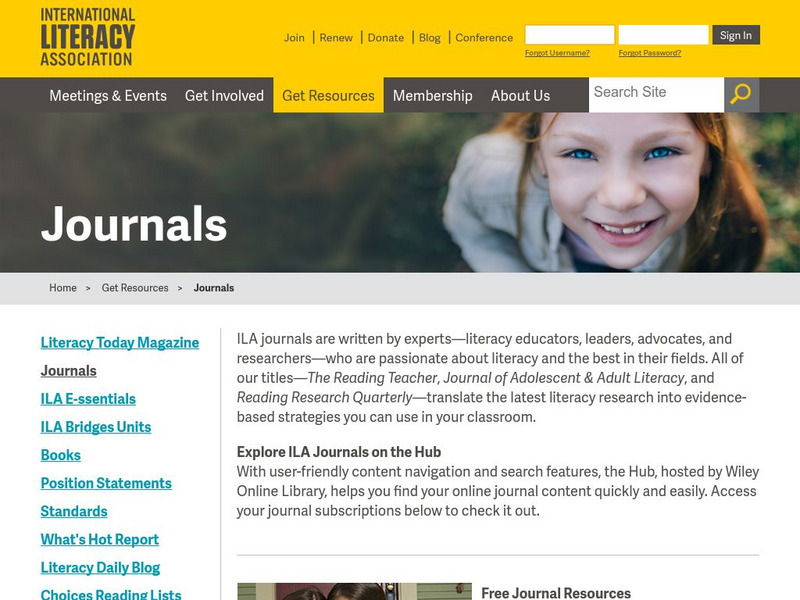
![De Paul University: Center for Urban Education: I Can Classify and Infer When I Read [Pdf] Unit Plan De Paul University: Center for Urban Education: I Can Classify and Infer When I Read [Pdf] Unit Plan](https://content.lessonplanet.com/knovation/original/119984-1e8c3bd778b0e773bd6dcdc545a348e7.jpg?1661787061)
![De Paul University: Center for Urban Education: Identify Important Info When I Read [Pdf] Unknown Type De Paul University: Center for Urban Education: Identify Important Info When I Read [Pdf] Unknown Type](https://content.lessonplanet.com/knovation/original/119990-77415f8bf3a2d78884ec00eceb814d0c.jpg?1661787069)
